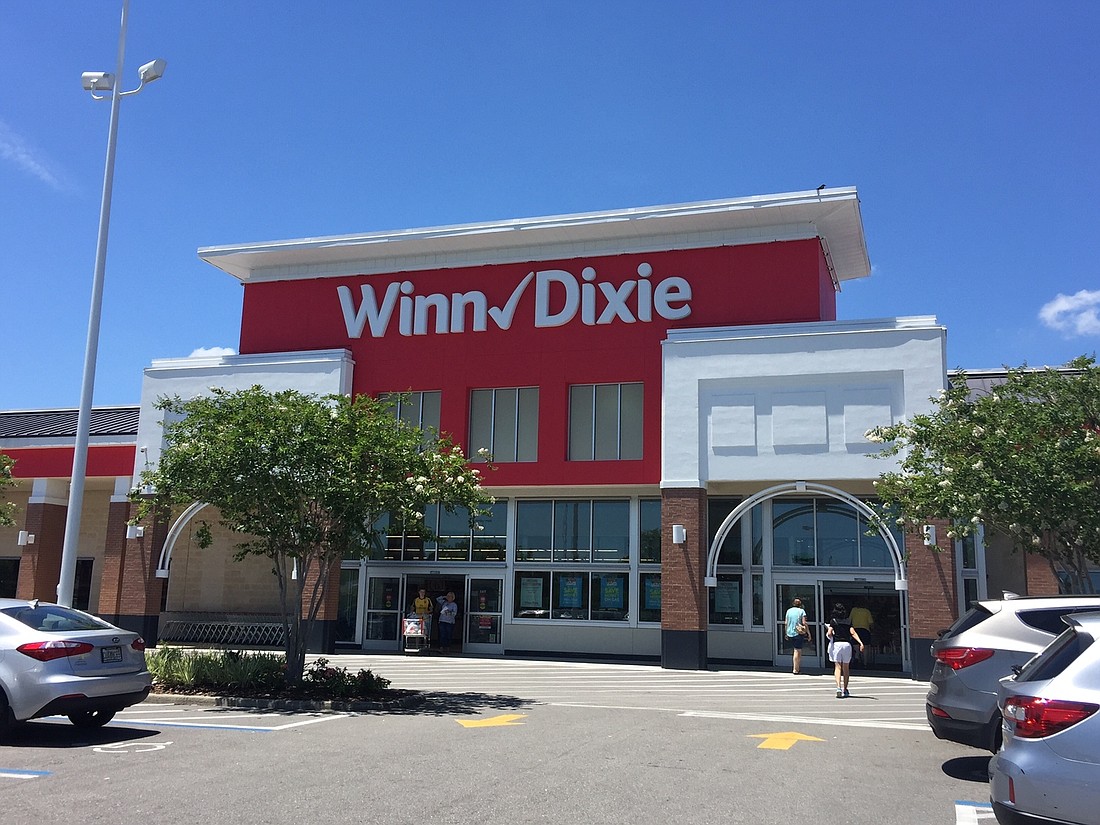
Industry reports resurfaced over the weekend that Winn-Dixie’s parent company was preparing for a bankruptcy filing, a prediction first reported in November.
This time, however, a few more expectations were included – that the filing could be as soon as March and that almost 200 of Jacksonville-based Southeastern Grocers LLC’s stores – or more than a quarter – could close about the same time.
The Bloomberg news service, citing unidentified sources, said Bi-Lo LLC was planning to close the stores before or after the filing.
Reuters also filed a report.
Southeastern Grocers was formed after Winn-Dixie Stores Inc. merged with Greenville, South Carolina-based Bi-Lo LLC in 2012, with the headquarters put in Winn-Dixie’s Jacksonville offices.
It operates more than 700 supermarkets in seven Southeastern states, employing more than 50,000 people.
Southeastern Grocers owns Winn-Dixie, Bi-Lo, Harveys and Fresco Y Mas stores. About 30 Winn-Dixie stores and eight Harveys operate in the Jacksonville area.
Southeastern Grocers issued a statement Saturday that was similar to the one it did in November.
“Southeastern Grocers is undertaking an ongoing strategic review in advance of our unsecured bond maturity later this year,” the company said.
“The company’s business operations continue to be strong, as we serve our customers with quality and commitment by working seamlessly with our business partners every day,” said the Southeastern Grocers statement.
“We are dedicated to being a great place for associates to work and a great place for our customers to shop by providing quality, service and value in the communities we serve,” it concluded.
In November, an analyst’s report said debt issues could force Southeastern Grocers into another Chapter 11 reorganization filing more than a decade after it emerged from one sought in 2005.
Moody’s Investors Service downgraded its ratings on Southeastern in November, saying the supermarket company’s operating performance was improving but it was having difficulty paying $900 million in debt coming due in the next two years.
“The high refinancing risk due to the company’s significant debt maturities in 2018 and 2019 is a cause for concern as the current capital structure is unsustainable and the weak liquidity primarily due to the significant debt maturities increases the probability of a distressed exchange, hence the downgrade,” Moody’s Vice President Mickey Chadha said then.
“From an operating performance standpoint Bi-Lo has demonstrated improvement in EBITDA (earnings before interest, taxes, depreciation and amortization) and credit metrics and we expect this trend to continue,” Chadha said.
The $900 million in debt was issued by Bi-Lo Holding Finance and affiliated companies, Moody’s said. It lowered its rating on the companies from B3 to Caa1.
“Obligations rated Caa are judged to be speculative of poor standing and are subject to very high credit risk,” according to Moody’s ratings definitions.
Bloomberg reported in November that holders of those bonds are considering a debt-for-equity swap that would give them ownership stakes.
The report said that swap could be done in a Chapter 11 bankruptcy process, but it could also be done out of court.
Southeastern is controlled by private equity firm Lone Star Funds. Moody’s said in a report on the downgrade that Lone Star has contributed about $600 million in equity to the company but has taken $980 million in cash distributions since 2011.
“The company’s whole capital structure has to be refinanced in the very near term as it does not have enough liquidity to repay debt and run its business,” Moody’s said.
“Although we believe the company will ultimately be able to refinance and realign its capital structure to be more sustainable for the longer term, the refinancing risk is high and in our view there is a potential for a distressed exchange.”
Bloomberg said Lone Star is not willing to commit additional capital to the company. Lone Star said Monday it had no comment.
Supermarket News explained Friday that Southeastern Grocers has $475 million in unsecured notes issued by the holding company due to mature in September. It also has $425 million in senior secured notes issued by the operating company due Feb. 15, 2019.
In addition, its $900 million credit facility, which has about $284 million drawn, matures in November if any of the senior secured notes are outstanding at that time.
As a privately owned company, Southeastern Grocers does not publicly report financial data.
Both Winn-Dixie and Bi-Lo went through Chapter 11 restructurings before their merger.
Winn-Dixie filed for Chapter 11 in U.S. Bankruptcy Court in Jacksonville in February 2005 and emerged in November 2006.
Winn-Dixie’s shareholders were wiped out in the bankruptcy but it remained a public company, with new stock issued to pay off claims in the restructuring.
Lone Star acquired Bi-Lo in 2005 and then took the company into Chapter 11 in March 2009 to restructure debt that was coming due.
Bi-Lo emerged from bankruptcy in May 2010, with Lone Star maintaining ownership after the restructuring.
Bloomberg reported Friday that with low margins and ample competition, the grocery business has always been challenging.
But now, it said, the industry is contending with a more aggressive push by big-box retailers and Amazon.com Inc., which acquired Whole Foods last year to give it a larger brick-and-mortar presence.
It said those moves threaten to force older chains to either consolidate or revamp their operations.